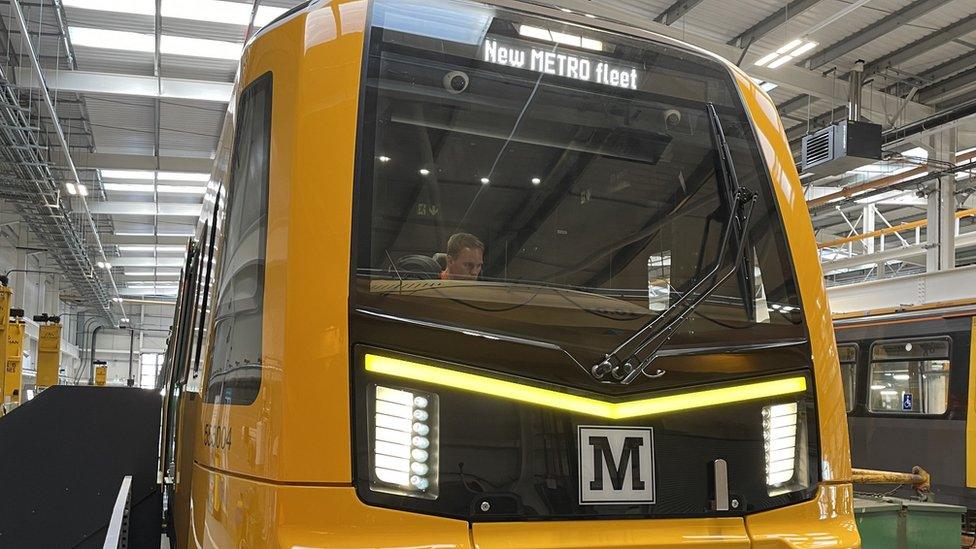New Metro trains launch delayed again
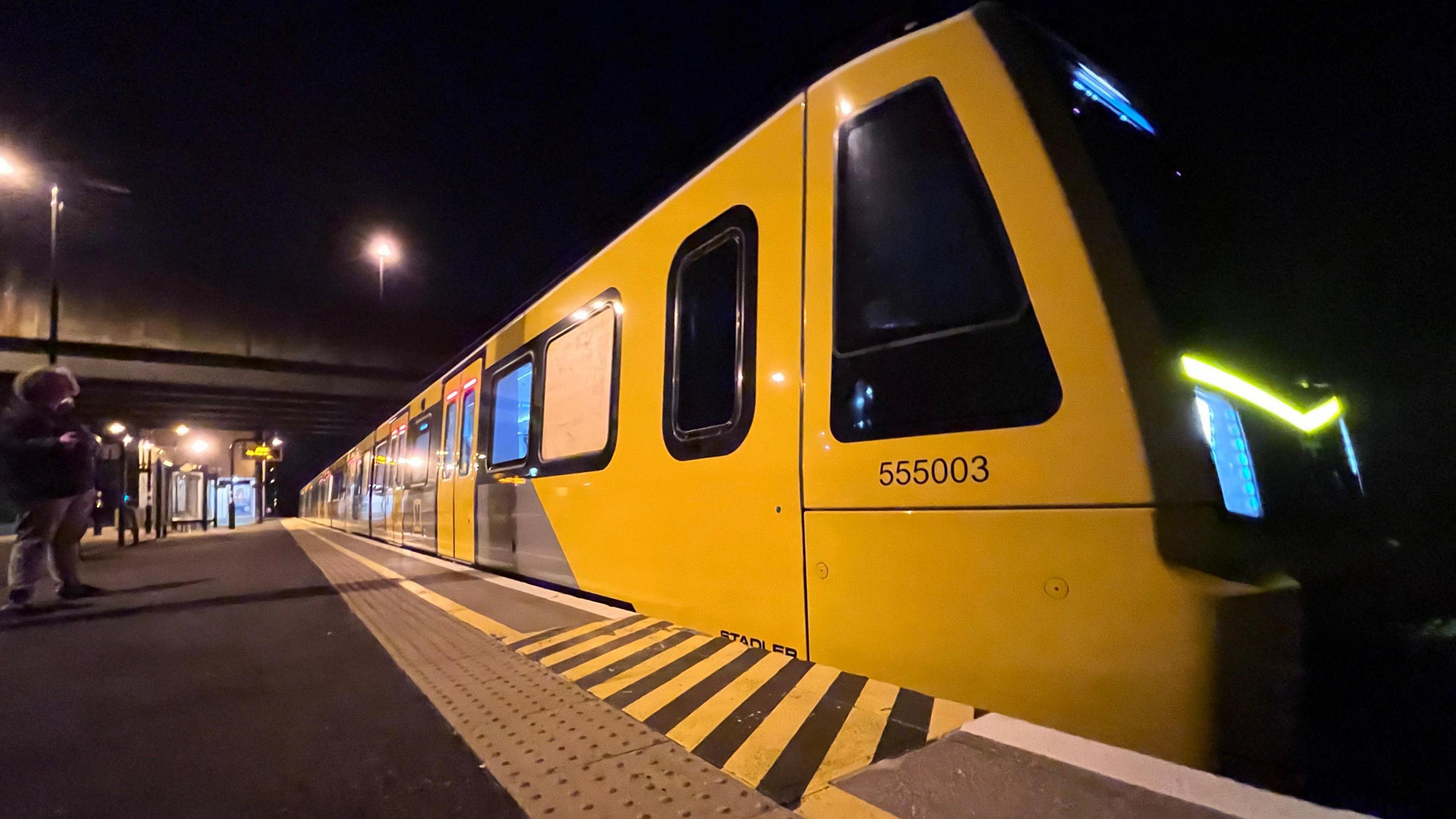
The initial target date for the first new trains to enter service was summer 2023
- Published
The introduction of new trains on the Tyne and Wear Metro has been further delayed, with bosses now hoping they will begin entering service at the end of 2024.
It is the latest setback for passengers who were initially told the £362m fleet of 46 trains would be introduced between summer 2023 and early 2025.
However, Metro operator Nexus has now said further tests need to be carried out.
Michael Richardson, head of fleet and depot programme, said it was "still aiming" to have the first train in service in 2024.
The latest setback comes following a record low of just 61% of Metro trains arriving on time during a four-week period in November and December, though punctuality has since improved.
Previous delays to the new fleet have been blamed on issues including driver training, inflation and the war in Ukraine.
The initial target date was first moved to the end of 2023, but last September that was pushed back to “early 2024”.
'Longer wait times'
Mr Richardson told the Local Democracy Reporting Service: “We’ve recently identified that further tests need to be conducted on the traction of the train, specifically when the rail conditions are unexpectedly poor.
"[Manufacturer] Stadler and Nexus are currently working through these now to ensure that trains perform to a high standard for the benefit of passengers."
He said this was "quite typical" during the rollout of a new fleet, adding: "We are still aiming to have the first train in service for customers in 2024 and we will have more of an exact timescale once this work is completed.”
The existing trains have been in use since the system opened in 1980 and are well beyond their 30-year lifespan, with Nexus and Stadler struggling to find spare parts to keep the ageing carriages operational.
Nexus, which is a publicly-owned body, said it "remained focused" on getting the best possible performance from current trains.
It added: “It is a challenging time and unfortunately our customers will experience busier trains and occasional longer wait times, especially at peak times."
Follow BBC North East on X (formerly Twitter), external, Facebook, external and Instagram, external. Send your story ideas to northeastandcumbria@bbc.co.uk.
Related topics
- Published11 January 2024
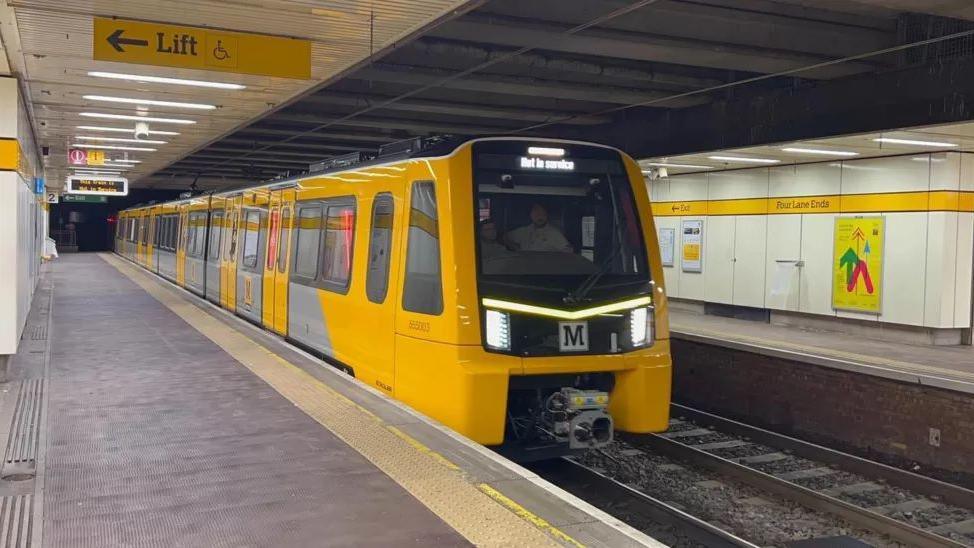
- Published10 January 2024
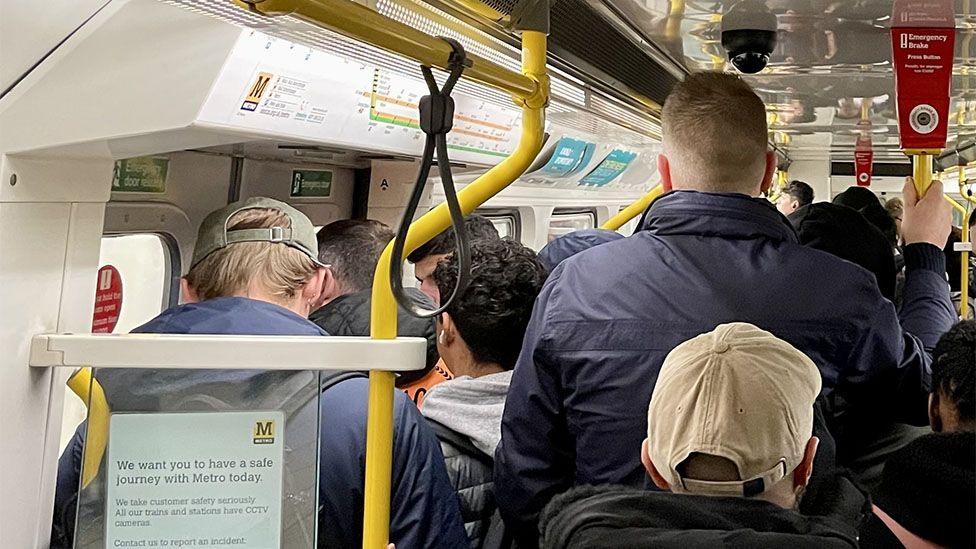
- Published5 January 2024
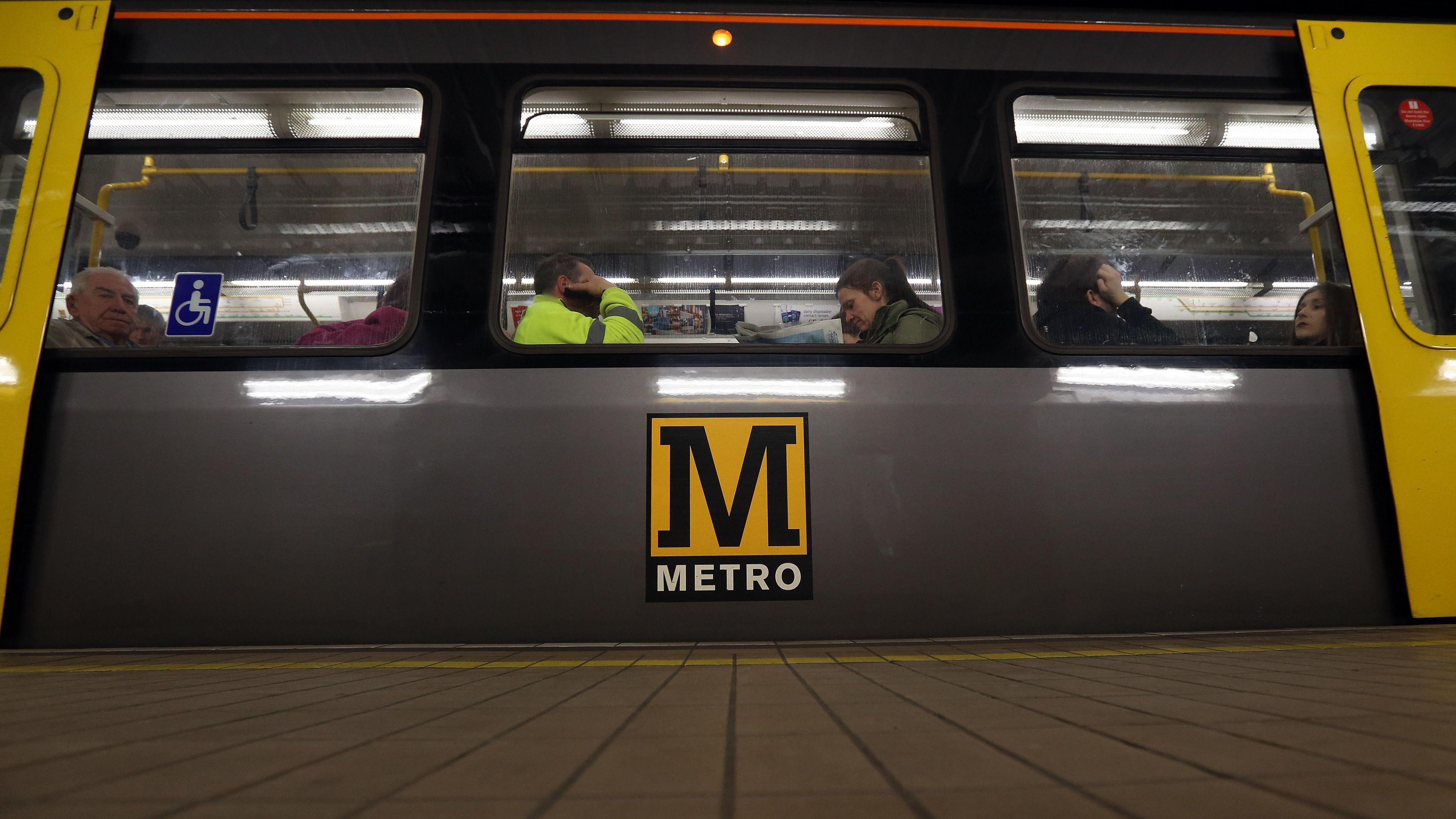
- Published14 September 2023
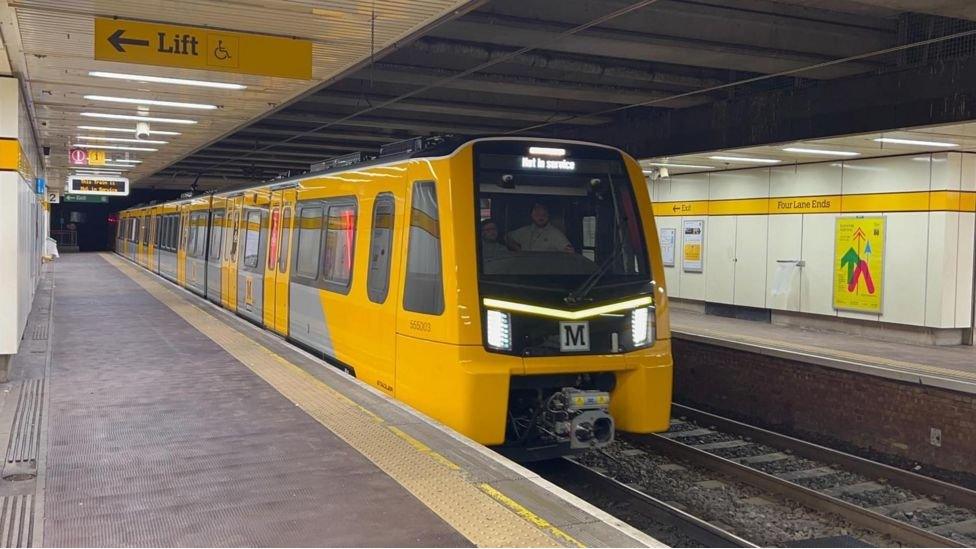
- Published17 March 2023
